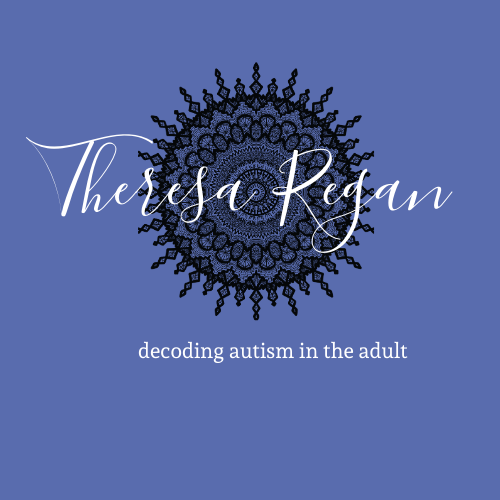Q and A Episode: Autism and the Physical Body
Description
Join Dr. Regan for an episode in which she answers listener questions related to autism and the physical body. Topics include genetics, brain pathways and neurology, nature versus nurture, medications, and nutrition/diet.
Genetics and Autism article
Neurogenetics: Smith-Magenis Syndrome
Autism and Medication review
Dr. Regan's Resources
New Course for Clinicians - Interventions in Autism: Helping Clients Stay Centered, Connect with Others, and Engage in Life
New Course for Clinicians: ASD Differential Diagnoses and Associated Characteristics
Book: Understanding Autism in Adults and Aging Adults, 2nd ed
Audiobook
Book: Understanding Autistic Behaviors
Autism in the Adult website homepage
Website Resources for Clinicians
Read the Transcript:
00:00:11,040 --> 00:00:14,410
Hello and thanks for joining me.
3
00:00:14,420 --> 00:00:18,220
This is Dr Theresa Regan welcoming you to the podcast,
4
00:00:18,230 --> 00:00:19,960
autism in the adult.
5
00:00:19,970 --> 00:00:22,170
I am a neuropsychologist,
6
00:00:22,180 --> 00:00:24,880
a certified autism specialist.
7
00:00:24,890 --> 00:00:30,150
The director of an autism diagnostic clinic for adolescents,
8
00:00:30,340 --> 00:00:32,100
adults and aging.
9
00:00:32,100 --> 00:00:36,760
Adults in Illinois and the parent of a teen on the spectrum.
10
00:00:39,040 --> 00:00:47,950
Last episode I invited listeners to write in questions they would like me to field in a question and answer podcast.
11
00:00:48,640 --> 00:01:01,940
So what I've done is that I have gone through and tried to group some of the questions into related categories and I won't get to all of the questions in this episode.
12
00:01:01,940 --> 00:01:09,560
But I am going to focus on several questions today that have to do with autism and the physical body.
13
00:01:10,240 --> 00:01:14,150
So we're going to review things like genetics,
14
00:01:14,460 --> 00:01:18,850
neuro anatomy and the physical brain in autism.
15
00:01:19,240 --> 00:01:26,060
We're also going to talk about things like nutrition and diet and other physical aspects,
16
00:01:26,440 --> 00:01:30,160
things that may impact the individual on the spectrum.
17
00:01:30,540 --> 00:01:33,450
Let's take the topic of genetics First.
18
00:01:35,840 --> 00:01:57,660
A recent article about the genetics of autism found that at least 80 percent of the likelihood that someone will have autism neurology is driven by the genetic code and it's the code that impacts the development of the neurology within that individual.
19
00:01:58,040 --> 00:01:58,390
So,
20
00:01:58,390 --> 00:02:04,960
the neurology includes of course the brain and its nuclei and its pathways,
21
00:02:05,440 --> 00:02:07,850
genetics includes code,
22
00:02:07,860 --> 00:02:11,650
parts that are inherited that is,
23
00:02:11,650 --> 00:02:20,340
there are some families with autism characteristics across multiple family members.
24
00:02:20,430 --> 00:02:24,460
Some members may not have any characteristics,
25
00:02:24,520 --> 00:02:28,960
some may have a clustering of autistic characteristics,
26
00:02:28,970 --> 00:02:31,420
but not a formal diagnosis.
27
00:02:31,420 --> 00:02:37,650
They don't meet full threshold for the diagnosis and others will meet full threshold.
28
00:02:38,140 --> 00:02:42,230
So for some people who are diagnosed with autism,
29
00:02:42,230 --> 00:02:44,760
they can see characteristics,
30
00:02:44,760 --> 00:02:49,450
qualities of this neurology and various family members,
31
00:02:49,840 --> 00:02:57,230
genetics also includes possible alterations in the code during development.
32
00:02:57,230 --> 00:03:02,210
So it can also mean that the genetics were not inherited,
33
00:03:02,220 --> 00:03:10,950
but that there were some unexpected alterations of the code as the brain and the nervous system were developing.
34
00:03:11,540 --> 00:03:22,250
That brings forth this autistic neurology and it is not as s
More Episodes
Join Dr. Regan for the fifth episode of the Lifespan of a Household series. Today's episode focuses on topics important to autistic individuals who are parenting young children.
Autism in the Adult website
Resources for professionals
Video Visits
Video Courses
Published 10/19/24
Join Dr. Regan for the 4th episode in the Lifespan of a Household series. Today's episode focuses on topics important to the autistic individual who is preparing for parenting.
Autism in the Adult website
Resources for professionals
Video Visits
Video Courses
Published 10/06/24
Published 10/06/24


